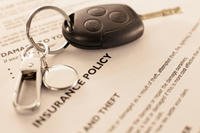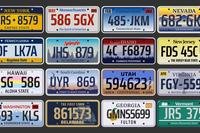So you've just purchased a new car. You're excited and your friends can't wait for a ride. But the excitement is tapered for a moment when you have to consider purchasing auto insurance. For many military personnel, their first thought might be to get insurance for the lowest price. But while this thinking may be penny-wise, it could be a costly decision in the long run. Here are some tips you should consider when purchasing auto insurance that will help you get the most bang for your buck.
Look for a company that understands the military.
Look for a company that understands the military lifestyle. Many insurance companies don't understand the impact of deployments, TDY, and other experiences that come with life in the military.
An important point to consider: If you are being deployed, don't cancel your insurance. For instance, some deployed service members put their cars in storage and cancel their auto insurance. This is a bad move for a number of reasons. First, if something happens to the car in storage, they have no coverage. Second, a lapse in insurance coverage will cause some insurance companies to deny them insurance when they return. Insurers that work with the military all the time will give you information on how to save money on your insurance when you're deployed, while making sure you're covered if something goes wrong when the car is in storage.
Discounts
Getting a military discount is something all members of the armed forces should take advantage of. Some companies that work with the military don't offer military discounts, because their rates are already lower than the competition. Other insurers particularly focus on keeping rates as low as possible around military bases.
Working with an agent vs. a direct writer.
This is key for members of the military who move often. If you use an insurance agent, then PCS to another location, you'll need to sever that relationship with your first agent, then go through the process of establishing a new relationship with another agent in your new location. Depending on the insurance company, this could lead to a lapse in coverage.
Every insurer uses some of your insurance premium to cover business costs. But when you work with an agent, a portion of what you pay (usually 10 percent) goes directly to the agent in commission. If your agent is your brother-in-law and you want him to have the commission, that's fine. But the agent only serves as a middle-man between you and the insurance company.
Another option is going with a direct-writer.These organizations don't use agents and you deal directly with the insurance company. The majority of your premium goes directly to handling your coverage. When you move, your coverage stays with you. All you have to do is call your insurance company with your new address.
Focus on coverage instead of price.
Price can be a primary factor buying auto insurance, especially for younger military members and their families. One important factor to consider in addition to cost savings is what happens if they need to file a claim. If the unthinkable happens, filing a claim with a "budget" insurer can often make you wish you would have gone a different route.
When comparing insurance policies, first look at how much coverage you would need if your automobile is "totaled" or stolen. Remember, your insurance will only pay off the value of the car, not how much you owe on your loan (unless you purchase additional "gap"coverage). Once you identify how much coverage you need, then look for the best price that fits the coverage.
Policyholders vs. members.
Consider the value of membership in an association that caters to military members. Many insurance companies will take your monthly premium for many years and all you get for the investment is coverage. If you don't file a claim, you feel as if you've lost that money for good.
However, there are other companies who refer to their policyholders as members. In this case, the member has a stake in how the insurance company does financially. In years where relatively few claims are paid, members receive rebates or dividends.
Check out the company.
Finally, if a catastrophe strikes, such as a hurricane in Florida or an earthquake in California, and many cars are damaged, you want to make sure your insurance company will be able to pay all claims -- especially yours. The best way to figure this out is to look at the financial ratings of these companies. Moody's, Standard & Poors, and AM Best all take a hard look at the books of every insurance company. They provide an unbiased look at the these companies and determine how well they would be able to withstand a catastrophic event.
The higher the ratings, the better the chance your insurance company won't file for bankruptcy if a large number of claims are filed at the same time.
Get started comparing companies now.
Our auto insurance quote comparison tool can help you compare insurance companies. Get the most coverage for your hard-earned dollars by receiving competing quotes in minutes.










